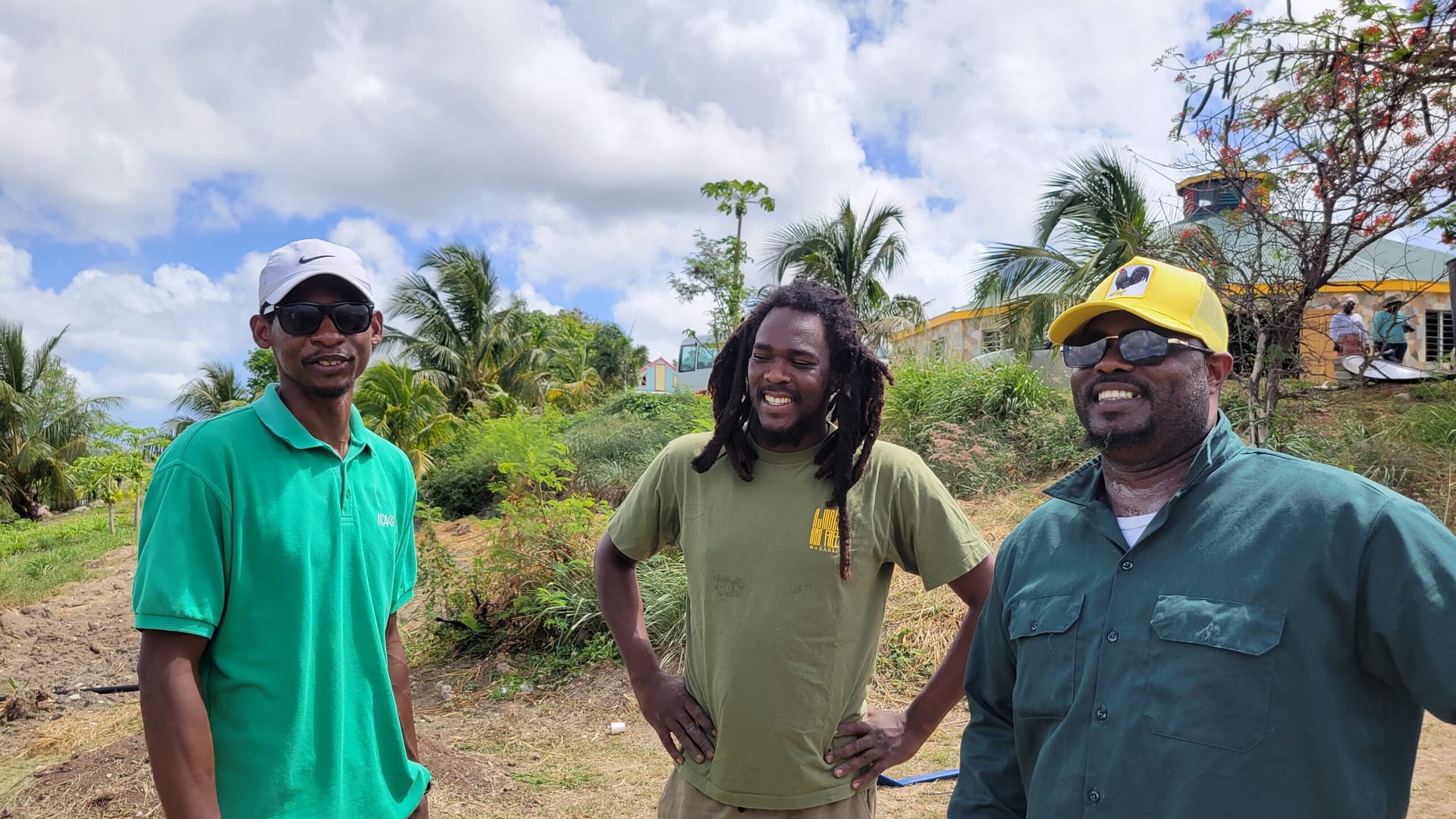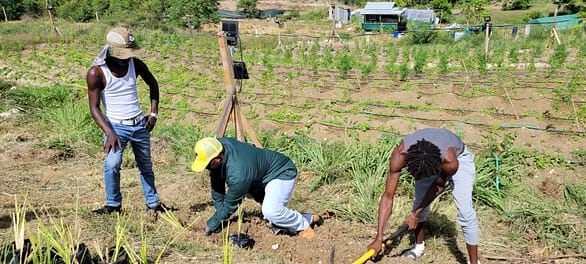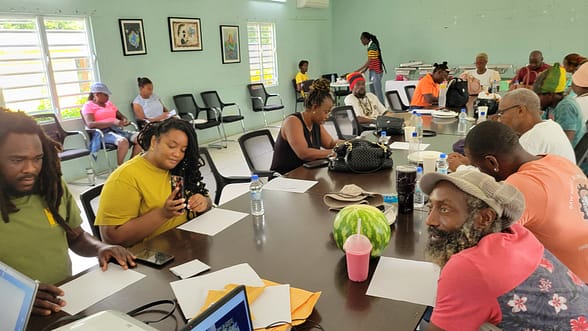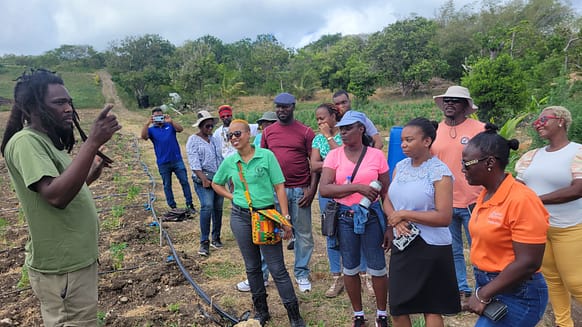
Thirty-three (33) people, including farmers and Ministry of Agriculture Extension Officers, benefitted from a two-day training on climate-smart agriculture (CSA), including nature and ecosystem-based solutions to enhance resilience.
The training was facilitated by Richard Rampersaud, Value Chain and Agri-business Specialist from the Inter-American Institute for Cooperation on Agriculture (IICA) Trinidad and Tobago Delegation.

The CSA farmer training was a part of the IICA-Caribbean Biodiversity Fund (CBF) project to strengthen coastal and marine climate resilience through upland and coastal ecosystem-based adaptation and community engagement implemented in Antigua and Barbuda, Dominica, Saint Lucia and Tobago.
The IICA-CBF EbA project is funded by the CBF EbA Facility, supported by the German Ministry of Environment, Nature Conservation, and Nuclear Safety and the International Climate Initiative (IKI).

The classroom and practical field CSA sessions shared information and simple tools to help farmers to better recognize and differentiate climate hazards from non-climate stressors which may compromise exposure and vulnerability of their farming operations.
A new and simple ‘SEFLIE’ hazard-based and color-coded tool was introduced to farmers to help them self-assess the climate hazards and other farming challenges they face, and score their own vulnerability, impact readiness and adaptive capacity.
It was designed to also be useful to farmers with literacy challenges.
The practical session took place at Ras Freeman farm, a local producer group with a mixed production system of cannabis, vegetables and fruit trees.


Based on the ‘SELFIE’ tool, participants were able to relate to the importance of situational awareness, by identifying hazards on their farm and its immediate surroundings.
Planting vetiver grass was demonstrated as a good practice to stabilize the soil below a newly built greenhouse to be used to produce the group’s seedlings.
This demonstration reinforced the IICA-CBF EbA project’s objective to promote nature-based solutions as an integral part of the toolkit for resilient and sustainable farming systems.
In brief, EbA is described as ‘a strategy for the integrated management of land, water, and living resources that promotes conservation and sustainable use in an equitable way, that aims to restore or strengthen the self-sustaining capacity of human-natural relationships’ (Richter et al. 2015).
This training expanded on the EbA project’s training on climate change impacts and soil health just over a year ago.
It identified the main climate hazards and non-climate stressors and their specific and interconnected risks.
Farmers were provided with information on a range of options that can be incorporated into their practices to mitigate their vulnerability, build adaptive capacity and simultaneously comply with good agricultural practices (GAP) for food safety.
Ika Fergus, Extension Officer commended IICA and its partners for this timely training, which complements the Ministry of Agriculture’s overall and continuous strategy to encourage farmers to find innovative strategies to tackle climate change, especially in this period where Antigua and Barbuda has been experiencing a prolonged drought.
In this regard, three farmers in Antigua and one in Barbuda were provided with tangible support in the form of 800-gallon water tanks to improve farm water management and a number of farmers will receive a batch of vetiver plants and potting bags over the coming weeks, from the Gilbert Agricultural Rural Development (GARD) Centre vetiver nursery, to install on their farms for soil erosion control and use of mature leaves as mulch in the dry season.
The GARD Centre vetiver nursery was fully seeded and supported under the IICA-CBF EbA project and is transitioning into a green business to supply vetiver and potentially other agriculture and horticulture plants to farmers, householders, and crafters on the islands.
IICA National Specialist, Craig M. Thomas thanked the farmers for taking time out of their busy schedules to participate in the workshop.
He highlighted the importance of recognizing the issue of climate change and the importance of paying attention to the issues relating to climate change.
CLICK HERE TO JOIN OUR WHATSAPP GROUP
CLICK HERE TO JOIN OUR WHATSAPP GROUP
CLICK HERE TO JOIN OUR WHATSAPP GROUP
CLICK HERE TO JOIN OUR WHATSAPP GROUP
CLICK HERE TO JOIN OUR WHATSAPP GROUP
CLICK HERE TO JOIN OUR WHATSAPP GROUP
Advertise with the mоѕt vіѕіtеd nеwѕ ѕіtе іn Antigua!
We offer fully customizable and flexible digital marketing packages.
Contact us at [email protected]















